
Heterogeneity of Diabetes: Beta Cells, Phenotypes, and Precision Medicine Symposium
Webinar Program Booklet
Table of Contents
- Welcome from Dr. Norman Rosenblum and Dr. William Cefalu
- NIH and CIHR Leadership
- Speakers
- Moderators
- Planning Committee
Welcome from Dr. Norman Rosenblum and Dr. William Cefalu
It gives us great pleasure to welcome you to this symposium, Heterogeneity of Diabetes: Beta Cells, Phenotypes and Precision Medicine presented by the Canadian Institutes of Health Research (CIHR) Institute of Nutrition, Metabolism and Diabetes (CIHR-INMD) and The National Institute of Diabetes and Digestive and Kidney Diseases (NIDDK, NIH).
As Scientific Director of the CIHR-INMD and Director of the Division of Diabetes, Endocrinology and Metabolic Diseases of the NIDDK, we believe the 100th anniversary of the discovery of insulin is a fitting occasion for our respective institutes to collaborate for the first time to celebrate diabetes research excellence in both the United States and Canada. This Symposium will bring together research leaders in both countries to tackle the challenges and opportunities presented by the investigation of the heterogeneity of diabetes with a view to improving diabetes care.
We look forward to this Symposium facilitating engagement and stimulating collaboration amongst participants, through discussions highlighting critical knowledge gaps and novel approaches in diabetes research.
Thanks to our program advisory committee for shaping the agenda, and to all of our speakers and moderators for their willingness to share their research and insights at this Symposium.
We hope this Symposium will be filled with invigorating, robust discussion and provide thought-provoking insights that will inspire us for the next 100 years!
Sincerely,
Norman Rosenblum MD, FRCPC, FCAHS
Scientific Director
Institute of Nutrition, Metabolism and Diabetes
Canadian Institutes of Health Research
William Cefalu, MD
Division Diabetes, Endocrinology and
Metabolic Diseases
National Institute of Diabetes and Digestive and Kidney Diseases
NIH and CIHR Leadership
 Francis Collins
Francis Collins
Director, National Institutes of Health
Francis S. Collins, M.D., Ph.D. was appointed the 16th Director of the National Institutes of Health (NIH) by President Barack Obama and confirmed by the Senate. He was sworn in on August 17, 2009. In 2017, President Donald Trump asked Dr. Collins to continue to serve as the NIH Director. President Joe Biden did the same in 2021. Dr. Collins is the only Presidentially appointed NIH Director to serve more than one administration. In this role, Dr. Collins oversees the work of the largest supporter of biomedical research in the world, spanning the spectrum from basic to clinical research.
Dr. Collins is a physician-geneticist noted for his landmark discoveries of disease genes and his leadership of the international Human Genome Project, which culminated in April 2003 with the completion of a finished sequence of the human DNA instruction book. He served as director of the National Human Genome Research Institute at NIH from 1993-2008.
Dr. Collins is an elected member of both the National Academy of Medicine and the National Academy of Sciences, was awarded the Presidential Medal of Freedom in November 2007, and received the National Medal of Science in 2009. In 2020, he was elected as a Foreign Member of the Royal Society (UK) and was also named the 50th winner of the Templeton Prize, which celebrates scientific and spiritual curiosity.
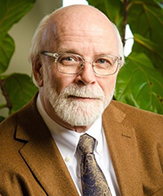 Michael Strong
Michael Strong
President, Canadian Institutes of Health Research
Dr. Michael Strong was appointed President of CIHR, effective October 1, 2018. Prior to joining CIHR, Dr. Strong was Dean of the Schulich School of Medicine & Dentistry and a Distinguished University Professor at Western University. From 2000 to 2010, he served as the Chief of Neurology and Co-Chair of the Department of Clinical Neurological Sciences at the London Health Sciences Centre and Western University. He has also served as Co-chair of the Canadian ALS Research Consortium and is a former member of the Board of Directors of the ALS Society of Canada.
Dr. Strong's clinical research has focused on understanding the neurodegenerative disease amyotrophic lateral sclerosis (ALS), also known as Lou Gehrig's disease. He is particularly interested in the occurrence of non-motor manifestations of the disease including the cognitive, behavioural, and emotional syndromes associated with ALS. His lab has focused on defining the role of alterations in tau protein metabolism in the frontotemporal syndromes of ALS and, increasingly, in traumatic brain injury.
Dr. Strong has published over 185 peer-reviewed articles and 29 chapters, edited four textbooks, and been invited to give over 160 lectures on ALS research throughout Canada and around the world. He is a recipient of both the Sheila Essey Award and the Forbes Norris Award, the only Canadian to have received both awards for ALS research. He was also awarded the Queen Elizabeth II Diamond Jubilee Medal in 2012 for his contributions to ALS research and care.
Dr. Strong earned his degree in medicine at Queen's University, undertook neurology training at Western University, and completed postgraduate studies at the Laboratory of Central Nervous System Studies at the National Institutes of Health in Bethesda, Maryland.
 Griffin Rodgers
Griffin Rodgers
Director, National Institute of Diabetes and Digestive and Kidney Diseases
Dr. Griffin P. Rodgers was named Director of the National Institute of Diabetes and Digestive and Kidney Diseases (NIDDK)--one of the National Institutes of Health (NIH)--on April 1, 2007. He had served as NIDDK's Acting Director since March 2006 and had been the Institute's Deputy Director since January 2001. As the Director of NIDDK, Dr. Rodgers provides scientific leadership and manages a staff of over 600 employees and a budget of ~$2.3 billion.
Dr. Rodgers received his undergraduate, graduate and medical degrees from Brown University in Providence, R.I. He performed his residency and chief residency in internal medicine at Barnes Hospital and the John Cochran VA, respectively, at Washington University in St. Louis, MO. His fellowship training in hematology was in a joint program of the NIH with George Washington University. In addition to his medical and research training, he earned an MBA, with a focus on the business of medicine/science, from Johns Hopkins University in 2005, and a Masters in Legal Studies in 2017.
As a research investigator, Dr. Rodgers is widely recognized for his contributions to the development of the first effective — and FDA approved — therapy for sickle cell anemia. In addition, he and his collaborators have reported on a modified blood stem-cell transplant regimen that is highly effective in reversing sickle cell disease in adults and is associated with relatively low toxicity. He has been honored for his research with numerous awards including the 1998 Richard and Hinda Rosenthal Foundation Award, the 2000 Arthur S. Flemming Award, the Legacy of Leadership Award in 2002, a Mastership from the American College of Physicians in 2005, the Herbert C. Nickens Award 2018 and a Fellowship in the Royal College of Physicians (London) in 2018, among others.
Dr. Rodgers is a member of the American Society of Hematology, the American Society of Clinical Investigation, the Association of American Physicians, the American Academy of Arts and Sciences, the American Association for the Advancement of Science, and the National Academy of Medicine, among others.
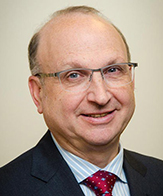 Norman Rosenblum
Norman Rosenblum
Scientific Director, CIHR Institute of Nutrition, Metabolism and Diabetes
Professor, Departments of Paediatrics, Physiology, & Laboratory Medicine and Pathobiology
University of Toronto
Senior Scientist, Research Institute of The Hospital for Sick Children
Pediatric Nephrologist, The Hospital for Sick Children
Dr. Norman Rosenblum is a professor of pediatrics, physiology, and laboratory medicine and
pathobiology at the University of Toronto, and a pediatric nephrologist and senior scientist at the Research Institute of The Hospital for Sick Children (SickKids). He is the recipient of a Tier I Canada Research Chair in Developmental Nephrology. He has been Scientific Director of the CIHR Institute of Nutrition, Metabolism and Diabetes since January 1, 2018.
Dr. Rosenblum attended medical school at Dalhousie University. He completed a pediatric residency and a fellowship in pediatric nephrology at the Children's Hospital, Boston followed by a postdoctoral fellowship at Harvard Medical School. Dr. Rosenblum was recruited in 1993 as a clinician scientist at SickKids. Since then, the focus of his research has been the study of kidney development with the goal of better understanding the causes of kidney malformation, disease and failure in children. His lab has generated several models of human kidney-urinary tract malformation. He has published over 110 peer-reviewed original manuscripts and book chapters.
He is deeply engaged in developing and managing career development programs for clinician-scientists. He founded and led the Canadian Child Health Clinician Scientist Program from 2001-2012. From 2009-2017, he served as Associate Dean, Physician Scientist Training in the Faculty of Medicine, University of Toronto, and he was director of both the MD/PhD and Clinician Investigator programs.
 William Cefalu
William Cefalu
Director, Division of Diabetes, Endocrinology and Metabolic Diseases
National Institute of Diabetes and Digestive and Kidney Diseases (NIDDK)
National Institutes of Health
Dr. William T. Cefalu is the Director of the Division of Diabetes, Endocrinology, and Metabolic Diseases (DEM) at the National Institute of Diabetes and Digestive and Kidney Diseases (NIDDK), National Institutes of Health (NIH). Prior to joining the NIH in August 2019, Dr. Cefalu served as Chief Scientific, Medical & Mission Officer of the American Diabetes Association (ADA). From 2012 to 2017, Dr. Cefalu was the Executive Director, the George A. Bray, Jr. Endowed Super Chair in Nutrition and a professor at Louisiana State University's (LSU's) Pennington Biomedical Research Center (Pennington Biomedical) in Baton Rouge, La.
Dr. Cefalu earned his Bachelor of Science degree from Southeastern Louisiana University and his Doctor of Medicine from LSU Heath Science Center, New Orleans. He completed his Internal Medicine residency and served as chief resident at the University of California, Irvine, Veterans Affairs Long Beach Healthcare System.
During his nearly 35-year career as a physician caring for patients, a scientist and a health care expert, Dr. Cefalu has been an active leader within the endocrine and diabetes scientific and medical communities. As an extramural investigator, Dr. Cefalu had research support from the National Institutes of Health (NIH) for more than 25 years and was the principal investigator for two NIH research centers. His clinical and basic science research focused specifically on interventions to improve the metabolic state of individuals with insulin resistance and type 2 diabetes, and in the cellular mechanisms for insulin resistance. In addition, over his career, he has played an active role in scholarly publications. From 2003 to 2011, he served as Associate Editor of Diabetes Care, the ADA's clinical research and care journal, and Diabetes, the ADA's basic science journal. From 2011-2017, he served as the editor-in-chief of Diabetes Care, and under tenure, Diabetes Care achieved the highest impact factor in its history. Dr. Cefalu is widely published in journals, books and book chapters, including more than 300 publications and 25 book chapters, and served as the editor of five books on the management of diabetes.
Speakers
Session 1: Islet Biology in Health and Diabetes
Part 1: Islet Microenvironment
 Mark Huising
Mark Huising
Associate Professor, Departments of Neurobiology, Physiology and Behavior & Physiology and Membrane Biology
University of California, Davis
Dr. Mark Huising leads an independent research program that is focused on the physiological role of paracrine crosstalk within pancreatic islets. This work builds on a novel negative feedback loop that his lab discovered where the peptide hormone Urocortin3 released by beta cells in response to glucose is necessary to promote somatostatin secretion from pancreatic delta cells. Somatostatin in turn inhibits beta cells to prevent excess insulin release. By visualizing the behavior of multiple islet cell types simultaneously and in real time, his group quantifies and compares the functional responses between the main endocrine islet cell types in response to hormone, nutrient and neurotransmitter stimulation. This comparison of functional responses across populations of hundreds or even thousands of individual cells reveal significant functional heterogeneity among alpha, beta, and delta cells that extends far beyond the subset of immature 'virgin' beta cells described by his group a few years ago.
 Richard Benninger
Richard Benninger
Assistant Professor, School of Medicine
University of Colorado, Denver
Dr. Benninger received his PhD in Physics from Imperial College London and went on to complete his postdoctoral training at Vanderbilt University under the mentorship of David Piston. During this time Dr Benninger developed an interest in islet biology and particularly the role for gap junction communication and connectivity underlying islet function. Dr Benninger then established his independent research program at the University of Colorado jointly between the Barbara Davis center for diabetes and the Department of Bioengineering. A main focus of the Benninger lab is to understand how the islet functions as an integrated unit and how this integration diminishes during diabetes progression. This includes how heterogeneous insulin-secreting β-cells and other endocrine cells within the islet interact via electrical synapses and paracrine factors, as well as how they integrate with the surrounding vasculature and innervations. Dr Benninger's lab applies a number of state-of-the-art imaging methods that includes quantitative fluorescence microscopy, optogenetics and contrast-enhanced ultrasound.
 Joana Almaca
Joana Almaca
Research Assistant Professor, School of Medicine
University of Miami
Dr. Almaca has a long-standing interest in cellular physiology, in understanding how cells work in a healthy state and what becomes compromised under disease conditions. She was trained as an electrophysiologist and studied ion channels in epithelial cells. For her postdoc, she switched her universe of epithelial cell biology to that of pancreatic islets. Islets are clusters of endocrine cells scattered throughout the pancreas, which release different hormones in response to changes in blood glucose levels. Islet dysfunction leads to diabetes. Islets are highly vascularized and a close interaction of islet endocrine cells with the microvasculature is crucial for proper function. Her lab's research focuses on understanding how endocrine cells communicate with perivascular elements (e.g., pericytes, macrophages, fibroblasts), and adjust islet microvascular function and blood flow to the metabolic needs. They believe that disturbances at the vascular niche can negatively impact islet performance and contribute to diabetes pathogenesis.
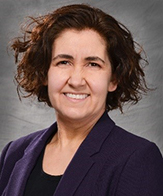 Rebecca L. Hull-Meichle
Rebecca L. Hull-Meichle
Professor, Division of Metabolism, Endocrinology and Nutrition
University of Washington
Director, Diabetes and the Islet Research Program
UW Medicine Diabetes Institute
Rebecca L. Hull-Meichle is a Research Professor of Medicine at the University of Washington and VA Puget Sound Health Care System. She is focused on mechanisms by which islet β-cell function and mass decline in diabetes, with a particular focus on novel aspects of the islet milieu in diabetes that contribute to β-cell dysfunction. Current areas of interest include the role of the islet endothelial cell, islet extracellular matrix and islet amyloid deposition in the development and progression of β-cell dysfunction and death, along with elucidating mechanisms underlying islet failure in cystic fibrosis-related diabetes. Dr. Hull-Meichle has been continuously funded by NIH/NIDDK since 2006 and is also supported by the VA and Cystic Fibrosis Foundation. Dr. Hull-Meichle also directs the University of Washington DRC Cellular and Molecular Imaging Core and the Diabetes and Metabolism Enrichment Program, in addition to serving on numerous editorial and grant review boards.
 Patrick MacDonald
Patrick MacDonald
Professor, Department of Pharmacology
University of Alberta
Director, Alberta Diabetes Institute IsletCore
Dr. Patrick MacDonald completed his PhD at the University of Toronto and postdoctoral training in Sweden and the UK. He is currently Professor and Canada Research Chair in the Department of Pharmacology and the Alberta Diabetes Institute at the University of Alberta. His laboratory focuses on understanding the cellular physiology of pancreatic hormone secretion in health and diabetes using electrophysiology, cellular imaging, and transgenic models. Recent work has focused on combining single-cell approaches to phenotype human islet cells. Dr. MacDonald also directs the Alberta Diabetes Institute (ADI) IsletCore which isolates, banks, and distributes human pancreatic islets for research around the world.
Part 2: Islet Engineering
 Francis Lynn
Francis Lynn
Associate Professor, Department of Surgery
University of British Columbia
Investigator, BC Children's Hospital
Francis obtained his PhD in Physiology from the University of British Columbia in 2003. Following this he moved to San Francisco supported by JDRF Postdoctoral and Advanced Postdoctoral Fellowships with Michael German. Francis was recruited to the BC Children's Hospital Research Institute in 2009 and is an Associate Professor in the UBC Department of Surgery and a Founding Member of the UBC School of Biomedical Engineering. Francis has been supported by the Goepel Family/ Diabetes Canada Young Investigator Award in Islet Cell Development; the JDRF Alan Permutt Career Development Award and a Michael Smith Foundation for Health Sciences Scholar Award. Francis' work has led to publication of 55 highly-cited articles in top journals including Diabetes, Developmental Cell, PNAS, Nature and Nature Medicine. The Lynn Lab currently has 8 members and is funded by grants from the JDRF, the Canadian Institutes of Health Research, BC Children's Hospital Foundation and the Stem Cell Network. Research is focused on understanding how we can improve the in vitro development of cell-based therapies for diabetes by taking cues from embryonic development.
 Juan Melero-Martin
Juan Melero-Martin
Associate Professor, Department of Surgery
Harvard Medical School
Associate Professor, Department of Cardiac Surgery
Boston Children's Hospital
Dr. Melero-Martin graduated in Chemical Engineering from the University of Seville, Spain. He earned his Ph.D. in Biochemical Engineering from the University of Birmingham, UK, in 2005. He then trained as a post-doctoral fellow in the Vascular Biology Program at Boston Children's Hospital. He is currently an Associate Professor of Surgery, Harvard Medical School, and the inaugural incumbent of an endowed Chair in Cardiac Surgery at Boston Children's Hospital. Dr. Melero-Martin's research is focused on how to build vascular networks. His laboratory specializes in the biology of human blood-derived circulating endothelial colony-forming cells (ECFCs) and induced pluripotent stem cell (iPSC)-derived ECs. His group has developed novel approaches to bioengineer vascular networks and harness the regenerative potential of various stem cells. His group also developed a model that uses genetically engineered blood vessels to achieve the controlled release of therapeutic proteins in vivo.
 Eiji Yoshihara
Eiji Yoshihara
Principal Investigator, The Lundquist Institute for Biomedical Innovation
Harbor-UCLA Medical Center
Assistant Professor, David Geffen School of Medicine
University of California Los Angeles
Dr. Yoshihara is the principal investigator in Lundquist Institute at Harbor-UCLA Medical Center and the assistant professor in David Geffen School of Medicine at UCLA. He received his Ph.D. degree from Kyoto University in Japan. During his Ph.D. he studied molecular basis of whole-body metabolic regulation and islets physiology, regulated by Thioredoxin interacting protein (Txnip). He studied at Salk Institute in La Jolla with Dr. Ron Evans for the further training on genomics, physiology and stem cell biology. His research interests lie in the interdisciplinary field of developmental biology, physiology genomics and engineering. He aims to understand the transcriptional and epigenetic gene-regulatory networks that underlie human islet organogenesis, tissue regeneration and cellular communication to find the novel therapeutic candidates for diabetes.
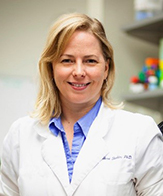 Cherie Stabler
Cherie Stabler
Professor, Department of Biomedical Engineering
University of Florida
Dr. Cherie Stabler is a Professor in the Department of Biomedical Engineering, College of Engineering at the University of Florida. She also is an Affiliate Member of the UF Diabetes Institute. She received her Ph.D. in Biomedical Engineering from The Georgia Institute of Technology & Emory University in 2004. From 2006 to 2014, she was an Associate Professor in BME at the University of Miami, where she also served as the Director of the Tissue Engineering laboratory at the Diabetes Research Institute. Dr. Stabler has established an internationally recognized research and educational program focused on the generation of translational biomaterial platforms for cellular implants, with a particular emphasis on treating Type 1 diabetes. She is an elected fellow of the American Institute for Medical and Biological Engineering, the recipient of the 2008 NIH NIDDK Type 1 Diabetes Pathfinder DP2 Award, the Integra LifeSciences Term Professorship, and the UF College of Engineering Teacher/Scholar of the Year (2019).
 Maike Sander
Maike Sander
Director, Pediatric Diabetes Research Center
Professor, Departments of Pediatrics & Cellular and Molecular Medicine
Maike Sander is the Director of the Pediatric Diabetes Research Center and Co-Director of the Center on Diabetes in the Institute of Engineering in Medicine at UC San Diego. The major focus of her research is to understand the molecular mechanisms that control the formation and function of insulin-producing pancreatic beta cells. Her work combines genetic approaches in mice and human pluripotent stem cells (hPSCs) with next generation sequencing-based assays. A major recent effort of her research has been to build a hPSC-derived organoid model that recreates the entire islet niche. Her honors include the Grodsky Award from the Juvenile Diabetes Research Foundation, the Humboldt Research Award, and election to the American Society of Clinical Investigation, American Association of Physicians and German National Academy of Sciences.
Part 3: Beta Cell Stress and Death in Diabetes
 Carmella Evans-Molina
Carmella Evans-Molina
Director, Center for Diabetes and Metabolic Diseases
Indiana University School of Medicine
Professor, Department of Pediatrics
Indiana University
Dr. Carmella Evans-Molina is the Eli Lilly Professor of Pediatric Diabetes at the Indiana University School of Medicine in Indianapolis, IN, where she serves as Director of the IU Center for Diabetes and Metabolic Diseases and as a Staff Physician at the Roudebush VA Medical Center. She is a Co-Executive Director of the Network for Pancreatic Organ Donors with Diabetes (nPOD) and is a Co-PI of the NIH Integrated Islet Distribution Program. Dr. Evans-Molina's basic science research is focused on understanding how impaired calcium handling in the secretory pathway contributes to β cell dysfunction in diabetes. In addition, she has a clinical research interest focused on defining the natural history of β cell loss in type 1 diabetes and the use of “omics” approaches to identify novel serum biomarkers of β cell stress in pre-symptomatic diabetes. She is an investigator in the NIH-funded Type 1 Diabetes Trialnet, RADIANT, and TIDAPC Networks.
 Feyza Engin
Feyza Engin
Assistant Professor, Departments of Biomolecular Chemistry & Medicine
University of Wisconsin-Madison
Feyza Engin, Ph.D., obtained her Pharmacy and Master's degrees from Istanbul University and completed her Ph.D. in Genetics at Baylor College of Medicine. Following completion of her graduate studies, she moved to Harvard University for her postdoctoral studies. There she demonstrated that endoplasmic reticulum (ER) stress and the aberrant unfolded protein responses (UPR) in pancreatic β-cells play a critical role in the progression of autoimmune diabetes and mitigating endoplasmic reticulum stress pharmacologically can prevent type 1 diabetes (T1D) in preclinical models. Dr. Engin is currently an Assistant Professor at University of Wisconsin-Madison, School of Medicine and Public Health. Her lab focuses on understanding the function of β-cell ER stress and the UPR in T1D using pharmacological tools, preclinical mouse genetic model systems, as well as isolated human islets. She is the recipient of several prestigious awards including JDRF Career Development Award, NIH Research Scientist Development Award, and Shaw Scientist Award.
 Peter Thompson
Peter Thompson
Assistant Professor, Department of Physiology & Pathophysiology
University of Manitoba
Principal Investigator, Children's Hospital Research Institute of Manitoba
Dr. Peter Thompson earned his PhD in Medical Genetics at the University of British Columbia working on epigenetic regulation in stem cells. He was a Larry Hillblom Foundation postdoctoral fellow at the University of California San Francisco, where his work uncovered beta cell senescence as a new form of dysfunction in Type 1 Diabetes (T1D). He is now an Assistant Professor in the Department of Physiology & Pathophysiology at the University of Manitoba and a Principal Investigator in the Children's Hospital Research Institute of Manitoba. The main theme of his research program investigates the molecular mechanisms involved in the pathogenesis of T1D, with a focus on the role of stress responses arising in beta cells and their crosstalk with the immune system. A second theme focuses on the role of extracellular vesicles in T1D. The long-term goal of his research program is to develop beta cell-directed therapies for T1D.
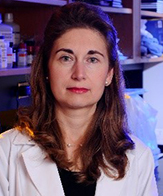 Anath Shalev
Anath Shalev
Professor, Department of Medicine
University of Alabama at Birmingham
Director, UAB Comprehensive Diabetes Center
Dr. Anath Shalev received her MD and training at the University of Basel, Switzerland. After a Postgraduate Course in Experimental Biology/Medicine at the University of Zurich, she came to the U.S. and did a research fellowship at Harvard Medical School and her fellowship training in Endocrinology, Diabetes and Metabolism at the National Institutes of Health in Bethesda. In 2002, she became an Assistant Professor at the University of Wisconsin-Madison and was later promoted to Associate Professor and Director of Endocrinology, Diabetes and Metabolism Research there. Dr. Shalev moved to the University of Alabama at Birmingham (UAB) as a Professor of Medicine in 2010 to become the Director of the UAB Comprehensive Diabetes Center and the Nancy R. and Eugene C. Gwaltney Family Endowed Chair in Juvenile Diabetes Research. Dr. Shalev's laboratory has pioneered the role of thioredoxin-interacting protein (TXNIP) in pancreatic islet biology and continues to work on the translation of the molecular findings into novel therapeutic approaches for diabetes.
Session 2: Heterogeneity of Diabetic Phenotypes Before and After Diagnosis - Impact on Management and Treatment
Part 1: Diversity of Phenotypes and Pathophysiological Endotypes. Impact on Prognosis and Personalized Treatment. Current Research and Knowledge Gaps.
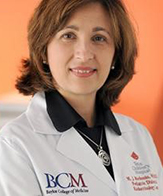 Maria J. Redondo
Maria J. Redondo
Professor, Department of Pediatrics
Baylor College of Medicine
Pediatric Endocrinologist, Texas Children's Hospital
Dr. Redondo is Professor of Pediatrics at Baylor College of Medicine and a Pediatric Endocrinologist at Texas Children's Hospital in Houston, Texas, United States. Dr. Redondo's research focuses on type 1 diabetes (T1D) genetics and atypical forms of diabetes. Her NIH NIDDK funded projects aim to incorporate genetic risk scores in the predictive model for T1D, use genetics to improve the selection of candidates for prevention trials, and dissect the heterogeneity of diabetes by defining endotypes with therapeutic relevance. More recently, she's also working to leverage genetics for timely and accurate diagnosis of diabetes type in children. Dr. Redondo is actively involved in the American Diabetes Association (ADA) Precision Medicine in Diabetes Initiative, where she chairs the T1D Diagnostic group, and is member of the T1D Treatment group. She was member of the ADA Professional Practice Committee that issued the 2019 and 2020 Standards of Medical Care in Diabetes.
 Kristen Nadeau
Kristen Nadeau
Professor, Department of Pediatrics
University of Colorado-Anschutz
Co-Chair, Clinical Research Core
NIH Diabetes Research Center
Kristen Nadeau, MD, is UC-Anschutz's Pediatric Endocrinology and Bariatric Surgery Research Director, and NIH Diabetes Research Center's Clinical Research Core Co-Chair. Her research focuses on understanding mechanisms of and training Jr. investigators in youth-onset diabesity to prevent long-term complications, using gold-standard clamp, isotope and MRI methods to study insulin sensitivity/secretion and comprehensive cardiovascular, circadian and hepatorenal phenotyping. As Pediatric Chair of NIDDK's multi-center RISE study of β-cell preservation, and a cardio/renal/metabolic leader in NIDDK's TODAY study, she helped demonstrate that youth-onset T2D is alarmingly more aggressive and treatment-resistant than adult-onset, now being addressed as MPI of a multi-site RO1 evaluating mechanisms and outcomes of bariatric surgery in youth-onset T2D, and Co-I of a multi-site gestational diabetes prevention R01 in American Indians. She also demonstrated that adjunctive metformin or bromocriptine improves IR and cardiovascular health in T1D. In 2021 she was elected to ASCI and received the ADA's Outstanding Investigator Award.
 Melena Bellin
Melena Bellin
Associate Professor, Departments of Pediatrics & Surgery
University of Minnesota
Director of Research, Islet Autotransplantation
University of Minnesota
Dr. Melena Bellin is an Associate Professor of Pediatric Endocrinology and Diabetes and the Director of Research for Islet Autotransplantation at the University of Minnesota. She completed her medical school, pediatric residency, and endocrinology fellowship at the University of Minnesota, where she currently works in the Department of Pediatrics, Division of Endocrinology, with a joint appointment in the Department of Surgery (Schulze Diabetes Institute). Her research focuses include diabetes secondary to chronic and acute pancreatitis, total pancreatectomy and islet autotransplantation for patients with severe chronic pancreatitis, and clinical islet transplantation for type 1 diabetes.
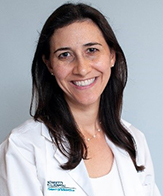 Miriam S. Udler
Miriam S. Udler
Assistant Professor, Department of Medicine
Harvard Medical School
Director, Diabetes Genetics Clinic
Massachusetts General Hospital
Miriam S. Udler, M.D, Ph.D. is an endocrinologist at Massachusetts General Hospital (MGH) and an Assistant Professor at Harvard Medical School. Dr. Udler is the founding director of the MGH Diabetes Genetics Clinic, which provides genetic testing, counseling, and management to patients with monogenic forms of diabetes. She is also an Associate Member of the Broad Institute of MIT and Harvard. Her research focuses on genetic contribution to diabetes risk and clinical applications of genomic data, including using genetics to identify atypical forms of diabetes and to dissect disease heterogeneity.
Part 2: Determinants of Pathophysiological and Clinical Phenotypes. Tools and Strategies for their Characterization
 John Dennis
John Dennis
Independent Research Fellow, Medical Statistics
University of Exeter
John is an Independent Research Fellow at the University of Exeter, UK, supported by a UKRI E3 Independent Research Fellowship. John's research focuses on developing a 'precision' approach to drug treatment in type 2 diabetes. Funded by the MRC and British Heart Foundation, John is applying novel statistical approaches and data science to better understand the benefits and risks of each diabetes drug option, in particular to identify people with different treatment responses and different susceptibility to side-effects. John is also developing a more general methodological framework for precision medicine research combining data from routine primary care and randomised clinical trials.
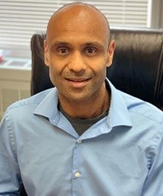 Satya Dash
Satya Dash
Assistant Professor, Department of Medicine
University of Toronto
Scientist, Toronto General Hospital Research Institute (TGHRI)
Dr. Dash is an Endocrinologist and Assistant Professor at University Health Network/University of Toronto. He is a clinician-scientist with an interest in obesity and cardiometabolic disease. He graduated from St. Bartholomew's & The Royal London school of Medicine and did his PhD and specialty training at Cambridge followed by a post-doctoral fellowship at Toronto. His current research interests are in understanding the etiology of obesity and cardiometabolic disease and its response to weight loss treatment. He is/has been funded by Diabetes Canada, Heart and Stroke Foundation, CIHR, Banting and Best Diabetes Center and McLaughlin Center.
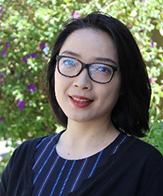 Wenyu Zhou
Wenyu Zhou
Head of Translational Endocrinology, Tempus Labs
Wenyu is endlessly amazed by the order and intricacy of life in its forms and interconnections. She enjoys research adventures and discoveries, leveraging her expertise in integrating different types of clinical and molecular data with the latest statistical models. She had her post-doctorate training with Dr. Michael Snyder at Stanford University. With Dr. Snyder, she studied Type 2 Diabetes (T2D) and utilized multi-omic techniques to measure both host and microbial molecular changes over time to understand underlying associations with the disease onset and development. She led the Integrative Personal Omics Profiling (iPOP) project over the last few years. Wenyu has published in Nature, Nature Medicine, Cell Stem Cell, Cell Systems, and others, and actively serves as a reviewer for a number of scientific journals in the genomics field. Wenyu received her Ph.D. in Biology from the University of Washington at Seattle in 2012.
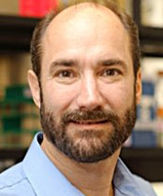 Michael Snyder
Michael Snyder
Chair and Professor, Department of Genetics
Stanford University
Director, Center for Genomics and Personalized Medicine
Stanford University
Michael Snyder is the Stanford Ascherman Professor and Chair of Genetics and the Director of the Center of Genomics and Personalized Medicine. Dr. Snyder received his Ph.D. training at the California Institute of Technology and carried out postdoctoral training at Stanford University. He is a leader in the field of functional genomics and multiomics, and one of the major participants of the ENCODE project. His laboratory study was the first to perform a large-scale functional genomics project in any organism, and has developed many technologies in genomics and proteomics. Seminal findings from the Snyder laboratory include the discovery that much more of the human genome is transcribed and contains regulatory information than was previously appreciated (e.g., lncRNAs and TF binding sites), and a high diversity of transcription factor binding occurs both between and within species. He launched the field of personalized medicine by combining different state-of–the-art “omics” technologies to perform the first longitudinal detailed integrative personal omics profile (iPOP) of a person, and his laboratory pioneered the use of wearables technologies (smart watches and continuous glucose monitoring) for precision health. He is a cofounder of many biotechnology companies, including Personalis, SensOmics, Qbio, January, Protos, Oralome, Mirvie and Filtricine.
 Gillian Booth
Gillian Booth
Professor, Department of Medicine and Institute of Health Policy, Management, and Evaluation
University of Toronto
Scientist, MAP Centre for Urban Health Solutions
St. Michael's Hospital
Dr. Gillian Booth is a Professor in the Department of Medicine and the Institute of Health Policy, Management, and Evaluation at the University of Toronto, and a Scientist in the MAP Centre for Urban Health Solutions at St. Michael's Hospital. Dr. Booth's research focuses on social, environmental, and health care factors influencing the risk of diabetes and its complications, including the role of the built environment in perpetuating obesity-related diseases. She has received numerous awards for her research, including a Tier 1 Canada Research Chair in Policy Solutions for Diabetes Prevention and Management. In addition, Dr. Booth has made major contributions to diabetes policy and practice in Canada. She has held scientific advisory roles for the Public Health Agency of Canada, CIHR, and NIH, and is currently leading the International Diabetes Federation's Special Interest Group on Diabetes and COVID-19 for the 2021 IDF Diabetes Atlas.
Session 3: Precision Medicine in Diabetes
 Atul Butte
Atul Butte
Professor, Departments of Paediatrics
University of California, San Francisco
Director, Bakar Computational Health Sciences Institute
University of California, San Francisco
Chief Data Scientist, University of California Health System
Atul Butte, MD, PhD is the Priscilla Chan and Mark Zuckerberg Distinguished Professor and inaugural Director of the Bakar Computational Health Sciences Institute at the University of California, San Francisco (UCSF). Dr. Butte is also the Chief Data Scientist for the entire University of California Health System, with 20 health professional schools, 6 medical schools, 5 academic medical centers, 10 hospitals, and over 1000 care delivery sites. Dr. Butte has been continually funded by NIH for 20 years, is an inventor on 24 patents, and has authored nearly 300 publications, with research repeatedly featured in the New York Times, Wall Street Journal, and Wired Magazine. Dr. Butte was elected into the National Academy of Medicine in 2015, and in 2013, he was recognized by the Obama Administration as a White House Champion of Change in Open Science for promoting science through publicly available data. Dr. Butte is also a founder of three investor-backed data-driven companies: Personalis (IPO, 2019), providing medical genome sequencing services, Carmenta (acquired by Progenity, 2015), discovering diagnostics for pregnancy complications, and NuMedii, finding new uses for drugs through open molecular data. Dr. Butte trained in Computer Science at Brown University, worked as a software engineer at Apple and Microsoft, received his MD at Brown University, trained in Pediatrics and Pediatric Endocrinology at Children's Hospital Boston, then received his PhD from Harvard Medical School and MIT.
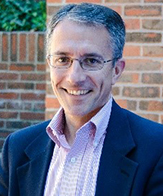 Jose Florez
Jose Florez
Chief, Endocrine Division and the Diabetes Unit
Massachusetts General Hospital
Professor, Department of Medicine
Harvard Medical School
Jose C. Florez, M.D., Ph.D. is the Chief of the Endocrine Division and the Diabetes Unit at the Massachusetts General Hospital, where he holds the John T. Potts Jr., MD Endowed Chair in Medicine. He is also Professor of Medicine at Harvard Medical School and an Institute Member at the Broad Institute. He and his group have contributed to the performance and analysis of high-throughput genomic studies in type 2 diabetes and related traits in several international consortia such as MAGIC, GENIE, DIAGRAM, T2D-GENES, AMP-T2D, SIGMA and RADIANT. He leads the genetic research efforts of the Diabetes Prevention Program and the GRADE clinical trial, and directs the Study to Understand the Genetics of the Acute Response to Metformin and Glipizide in Humans (SUGAR-MGH). He is clinically active in the MGH Diabetes Center, the Endocrine inpatient consult service, the Internal Medicine service, and the Down Syndrome Program. He is the Editor-in-Chief of Current Diabetes Reports, and the recipient of the 2010 Presidential Early Career Award for Scientists and Engineers, the highest honor bestowed by the United States government on science and engineering professionals in the early stages of their independent research careers. In 2019 he received the Father of the Year award from the American Diabetes Association.
Moderators
Session 1: Islet Biology in Health and Diabetes
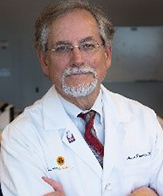 Alvin Powers
Alvin Powers
Professor, Departments of Medicine, Molecular Physiology & Biophysics
Vanderbilt University
Director, Vanderbilt Diabetes Research and Training Center
Alvin C. Powers, M.D., is a physician-scientist whose research on type 1 and type 2 diabetes focuses on pancreatic islet biology, development, and function. He is the Joe C. Davis Chair in Biologic Science and Professor of Medicine, Molecular Physiology and Biophysics at Vanderbilt University, the Chief of the Vanderbilt Division of Diabetes, Endocrinology, and Metabolism, and the Director of the Vanderbilt Diabetes Research and Training Center, a NIH-funded center that facilitates the diabetes-related research of more than 130 Vanderbilt scientists.
 Jennifer Estall
Jennifer Estall
Adjunct Professor, Division of Experimental Medicine & Department of Anatomy and Cell Biology
McGill University
Associate Research Professor, Department of Medicine
University of Montreal
Dr. Estall is known for her work on transcriptional regulators in nutrient metabolism and diabetes pathogenesis. She received her Ph.D. from the University of Toronto and post-doctoral training at Harvard Medical School, where she was awarded the H.L. Holmes Award (NRC). She is currently an Associate Research Professor at the Institut de recherches clinique de Montréal (IRCM), holding academic affiliations to the University of Montreal and McGill University. Her research focuses on beta cell nutrient metabolism and survival, mechanisms of fatty liver disease and obesity-related liver cancer, and how mitochondrial dysfunction impacts diabetes through organ crosstalk. Honours include a CIHR New Investigator Award, FRQS Chercheurs-boursiers and the Diabetes Canada Young Scientist Award. Dr. Estall is an active member of several networks focused on metabolic disease research, including the Montreal Diabetes Research Center (MDRC) and BETTER (BEhaviors, Therapies, TEchnologies and hypoglycemic Risk in T1D). She is also a founding member of the Fatty Liver Integrative Research Team (FLIRT) and Canadian Islet Research and Training Network (CIRTN).
 Corrine Hoesli
Corrine Hoesli
Associate Professor, Department of Chemical Engineering
McGill University
Prof. Corinne Hoesli is the head of the Stem Cell Bioprocessing Laboratory at McGill University. She is a biochemical engineer with expertise in bioprocess development, high‑throughput screening and stem cell culture optimization. Her research aims to develop bioprocesses to produce and transplant therapeutic cells to treat diabetes and cardiovascular disease. She developed emulsion-based methods to encapsulate pancreatic islet cells. Her laboratory has also developed surface modification techniques to selectively capture flowing cells and promote their proliferation on the surfaces. These multi-functional surfaces show potential in improving the endothelialisation of vascular biomaterials. Her emerging leadership in bioengineering was recognized through the 2014 Martin Sinacore Outstanding Young Investigator Award from Engineering Conferences International & Biogen Idec, as well as the “Étoiles effervescence” award from Montreal InVivo. Current projects in diabetes cellular therapy include engineering vascularized islet microencapsulation devices using 3D printing and studying the effect of mechanical signals on pluripotent stem cell differentiation into insulin-producing cells.
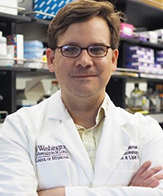 Jeffrey Millman
Jeffrey Millman
Assistant Professor, Departments of Medicine & Biomedical Engineering
Washington University School of Medicine
Dr. Jeffrey Millman received his Ph.D. in Chemical Engineering from the Massachusetts Institute of Technology and completed his postdoctoral training in the laboratory of Dr. Douglas Melton at Harvard University. He currently leads a multidisciplinary laboratory as an Assistant Professor in the Division of Endocrinology, Metabolism and Lipid Research in the Department of Medicine at the Washington University School of Medicine in St. Louis. His current research is supported by the NIH NIDDK and is focused on synergizing both biomedical engineering and cell biology approaches to use stem cells for the study and treatment of diabetes. He has made important discoveries into the role of key soluble factors and the insoluble microenvironment in cellular differentiation and developed scalable strategies for generating islets from stem cells in vitro that are capable of glucose-stimulated insulin secretion.
 Amelia Linnemann
Amelia Linnemann
Assistant Professor, Department of Pediatrics
Indiana University School of Medicine
Dr. Amelia Linnemann is an Assistant Professor in the Department of Pediatrics at Indiana University School of Medicine in Indianapolis, IN. She is a member of both the Herman B Wells Center for Pediatric Research and the NIH funded Indiana Center for Diabetes and Metabolic Diseases. Dr. Linnemann is the prior recipient of a prestigious K01 Career Development Award from the NIDDK, has maintained continuous extramural funding since establishing her lab in 2016, and is a member of the NIDDK-Human Islet Research Network (HIRN). Research in the Linnemann lab is focused on diabetes; specifically, the study of the insulin-producing pancreatic beta-cells under conditions of inflammatory stress. Dr. Linnemann is particularly interested in how higher-level metabolic signals contribute to molecular crosstalk within the islet and influence beta-cell adaptation to stress, specifically through studies focused on autophagy and the antioxidant response.
 James Johnson
James Johnson
Professor, Departments of Cellular and Physiological Sciences & Surgery
University of British Columbia
Deputy Director, Life Sciences Institute
University of British Columbia
Jim Johnson is Professor in the Department of Cellular and Physiological Sciences, and the Department of Surgery at the University of British Columbia, in Vancouver Canada. His laboratory is housed in the Diabetes Research Group at the Life Sciences Institute, where he is now Deputy Director. In 2016, Prof. Johnson co-founded the Institute for Personalized Therapeutic Nutrition based out of Vancouver, Canada, and is Board Chair of this non-profit dedicated to research, clinical care, and advocacy for people employing personalized diets to decrease the burden of type 2 diabetes. From 2016-2018, Prof. Johnson was the inaugural Director of the Novo Nordisk Research Centre in Oxford, a hybrid academic-industry Institute focused on the fundamental biology of type 2 diabetes and target discovery. Prof. Johnson remains Visiting Professor of Integrated Physiology in the Radcliff Department of Medicine and Senior Fellow at Harris-Manchester College, in Oxford. Prof. Johnson's greatest passion is training the next generation of scientists; many of his former trainees hold academic faculty positions or are senior scientists in industry. Prof. Johnson is actively involved in science outreach on Twitter @JimJohnsonSci.
Session 2: Heterogeneity of Diabetic Phenotypes Before and After Diagnosis - Impact on Management and Treatment
 Christopher Pin
Christopher Pin
Professor, Departments of Paediatrics, Oncology, & Physiology and Pharmacology
Chair, Genetics and Development Division
Children's Health Research Institute
Dr. Christopher Pin obtained his Ph.D. in Anatomy at the University of Western Ontario and subsequently undertook post-doctoral fellowship with Dr. Stephen Konieczny at Purdue University. Dr. Pin joined the Children's Health Research Institute (CHRI) and Western University in 2000 with appointments in Paediatrics, Physiology and Pharmacology and Oncology. He has recently been promoted to full Professor and is chair of the Genetics and Development division within the CHRI. He has published more than 50 research articles, book chapters and reviews and currently holds funding from CIHR, NSERC and the Cancer Research Society. His research program focuses on the transcriptional networks that control differentiation and function of exocrine pancreatic cells, and how altering these events initiate or promote pancreatitis and pancreatic ductal adenocarcinoma. Using preclinical models and patient samples, his laboratory currently examines the role of stress response pathways in epigenetic reprogramming of acinar cells in these diseases.
 Meredith Hawkins
Meredith Hawkins
Professor, Department of Medicine
Albert Einstein College of Medicine
Director, Einstein Global Diabetes Institute
Associate Director, Einstein-Mt. Sinai Regional Diabetes Research Center
Dr. Meredith Hawkins is Professor of Medicine and Associate Director of the Einstein-Mt. Sinai Regional Diabetes Research Center. She holds the Harold and Muriel Block Chair in Medicine. Dr. Hawkins' current research interests include the effects of nutrient deficiency and excess on insulin resistance, nutritional regulation of adipose tissue inflammation, central regulation of glucose metabolism, and hypoglycemia-associated autonomic failure. Dr. Hawkins is a Beeson Scholar of the American Federation of Aging Research, and has received research grants from the National Institutes of Health (continually since 1999), the American Diabetes Association, JDRF International and the Diabetes Action Foundation International. She is the recipient of numerous honors and awards, including the Junior Physician Scientist Award (2001) and the Outstanding Investigator Award (2012) from the American Federation of Medical Research, the Novartis Young Investigator award in Diabetes Research (2007), and election to the American Society for Clinical Investigation (2012). She currently serves on the Congressionally-appointed National Clinical Care Commission. Dr. Hawkins founded and directs Einstein's Global Diabetes Institute with the goal of building strategic partnerships in medical research and education to combat the burgeoning global diabetes epidemic.
 Minna Woo
Minna Woo
Professor, Departments of Medicine & Immunology
University of Toronto
Director, Division of Endocrinology and Metabolism, University Health Network/Sinai Health System
Senior Scientist and Metabolism Group Lead, Toronto General Hospital Research Institute
Dr. Minna Woo is the Soham and Shaila Ajmera Family Chair and Canada Research Chair in Molecular Diabetes Research and Professor of Medicine and Immunology at the University of Toronto. She is the Division Director of Endocrinology and Metabolism at the University Health Network/Mount Sinai Hospital and the Metabolism Group Lead and a Senior Scientist at the Toronto General Hospital Research Institute. Her laboratory focuses on molecular mechanisms that determine the pathogenesis of diabetes, and their associated cardiovascular and fatty liver diseases, focusing on major signaling pathways including JAK-STAT and PTEN. She has published over 90 research articles, many in high impact journals including Nature Medicine, Nature Communications, JCI Insight, and PNAS. Her research is supported by grants from the Canadian Institutes of Health Research, Heart and Stroke Foundation of Canada and the Canadian Liver Foundation. Her research is internationally recognized as a member elect of the American Society of Clinical Investigation.
 Anna Gloyn
Anna Gloyn
Professor, Department of Pediatrics
Stanford University
Dr. Anna Gloyn is Professor of Pediatrics (Endocrinology) at Stanford University having recently relocated from the University of Oxford. The consistent focus of her research has been the translation of genetic discovery efforts for monogenic and type 2 diabetes into mechanistic insights for pancreatic beta-cell dysfunction. Her work has been recognized with multiple international awards including the prestigious Minkowski Prize from the European Association for the Study of Diabetes. Dr. Gloyn is a member of multiple initiatives to accelerate the use of genomic diabetes for biological discovery and clinical translation including the ADA Precision Medicine working group for Precision Diagnostics in monogenic diabetes, the NIDDK funded Accelerated Medicines Partnership for Cardiometabolic Diseases, the International Common Disease Alliance and the Atlas for Variant Effects Alliance.
Planning Committee
Co-Chairs
 Norman Rosenblum
Norman Rosenblum
Scientific Director, CIHR Institute of Nutrition, Metabolism and Diabetes
Professor, Departments of Paediatrics, Physiology, & Laboratory Medicine and Pathobiology
University of Toronto
Senior Scientist, Research Institute of The Hospital for Sick Children
Pediatric Nephrologist, The Hospital for Sick Children
 William Cefalu
William Cefalu
Director, Division of Diabetes, Endocrinology and Metabolic Diseases
National Institute of Diabetes and Digestive and Kidney Diseases (NIDDK)
National Institutes of Health
Members
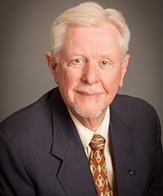 Dana Andersen
Dana Andersen
Senior Scientific Advisor, Division of Digestive Diseases and Nutrition
National Institute of Diabetes and Digestive and Kidney Disease (NIDDK)
National Institutes of Health
Dr. Andersen completed his undergraduate and medical degrees at Duke University, where he also trained in Internal Medicine as well as General Surgery. His career includes appointments at the State University of New York Health Sciences Center at Brooklyn, at the University of Chicago and Yale University, where he was Professor and Chief of General Surgery, at the University of Massachusetts where he was Chairman of Surgery, and at Johns Hopkins where he was Vice-Chair of Surgery and Surgeon-in-Chief at Johns Hopkins Bayview Medical Center. Since 2012, he has been a program officer in the Division of Digestive Diseases and Nutrition at the National Institute of Diabetes and Digestive and Kidney Diseases, NIH.
His research on pancreatic and gastrointestinal hormone physiology was funded by the National Institutes of Health, and he was a member of the NIH Surgery and Bioengineering Study Section. Dr. Andersen's clinical interests focus on disorders of the pancreas and organ-sparing forms of pancreatic surgery. His educational interests focus on the application of simulation methods in teaching and assessing clinical competence.
He is a past president of the Association for Academic Surgery, a co-editor of Schwartz's Principles of Surgery, and Chairman of the Board of Trustees of the National Pancreas Foundation.
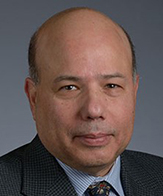 Guillermo Arreaza-Rubín
Guillermo Arreaza-Rubín
Program Director, Division of Diabetes, Endocrinology, and Metabolic Diseases
National Institute of Diabetes and Digestive and Kidney Disease (NIDDK)
National Institutes of Health
As director for clinical immunology of diabetes program and the technologies for the diagnosis and diabetes control program, Dr. Arreaza-Rubín oversees a variety of research projects designed to improve diagnosis, treatment and monitoring of this disease. His responsibilities include directing the Small Business Innovation Research/Small Business Technology Transfer Research (SBIR/STTR) program—which supports innovative research by small businesses that have the potential for commercialization—in areas related to immunology, diabetes and other endocrine and metabolic diseases. These areas include: drug discovery for diabetes and other endocrine diseases; new technologies for islet isolation, stem cell/regeneration, and transplantation; immune modulatory agents for the primary and secondary prevention of diabetes; inflammatory aspects of type 2 diabetes, insulin resistance, and obesity; and glucose control technologies. He oversees academic research on closed-loop systems/artificial pancreas development including novel glucose sensors and integrated pancreatic hormone replacement delivery technologies. His duties also include being program director for the Clinical Islet Transplantation (CIT) Consortium and the Clinical Islet Transplant Registry (CITR), acting as the executive secretary of the Clinical Islet Transplantation Consortium Data and Safety Monitoring Board. He also participates in the coordination of the new human islet research network (HIRN) program as a program director for the consortium for modeling autoimmunity (CMAI) and the consortium on human islet biomimetics (CHIB). He represents the NIDDK on several trans-NIH and interagency working groups on metabolic monitoring, inflammatory processes, autoimmunity and medical devices development and performance surveillance.
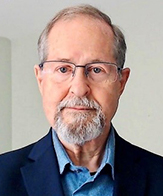 Stephen P. James
Stephen P. James
Director, Division of Digestive Diseases and Nutrition
National Institute of Diabetes and Digestive and Kidney Disease (NIDDK)
National Institutes of Health
Dr. James is the Director of the Division of Digestive Diseases and Nutrition in the National Institute of Diabetes & Digestive & Kidney Diseases (NIDDK) of the National Institutes of Health in Bethesda, Maryland, a position he has held since 2004.
Dr. James received his undergraduate degree from Cornell University and M.D. degree from Johns Hopkins. After medical residency training at Johns Hopkins, he completed further fellowship training in gastroenterology and liver diseases at the University of Maryland and NIDDK and training in immunology in the National Cancer Institute. From 1981 to 1991 he was an intramural scientist in the Laboratory of Clinical Investigation in the National Institute of Allergy and Infectious Diseases (NIAID), where he specialized in research in immunological aspects of diseases of the digestive system, particularly inflammatory bowel diseases. He returned to the University of Maryland in 1991 and served as the Helen and Moses Paulson Professor of Medicine and Head of the Division of Gastroenterology until 2001, when he returned to the NIH. Dr. James has served on numerous committees of different organizations including the AGA, the Crohn's & Colitis Foundation of America, Chairman of the National Commission on Digestive Diseases and the Institute Advisory Board for the CIHR Institute of Nutrition, Metabolism, and Diabetes (INMD). He has published over 200 original research articles, reviews, and book chapters.
 Christopher Pin
Christopher Pin
Professor, Departments of Paediatrics, Oncology, & Physiology and Pharmacology
Chair, Genetics and Development Division
Children's Health Research Institute
 Sheryl Sato
Sheryl Sato
Program Director, Division of Digestive Diseases and Nutrition
National Institute of Diabetes and Digestive and Kidney Disease (NIDDK)
National Institutes of Health
Dr. Sato's responsibilities include managing basic science research programs in developmental biology, stem cell biology and the regeneration of endocrine tissues and organs. She directs a program in islet biology that supports mechanistic studies to understand integrated islet function, beta cell renewal, and pathophysiology.
In addition, she helps coordinate research in the Human Islet Research Network (HIRN), a basic science research effort which is developing innovative strategies for the treatment, prevention and monitoring of type 1 diabetes. Within HIRN, Dr. Sato serves as the project scientist for the Consortium on Human Islet Biomimetics (CHIB). She is part of the NIH project team for the Tissue Chip 2.0 Consortium, and serves as the project scientist for the Microphysiological Systems for Modeling Diabetes (MPS-MOD). She is the program officer for the Integrated Islet Distribution Program (IIDP). In addition to her duties in the Division of Diabetes, Endocrinology, and Metabolic Diseases, she also participates in NIDDK working groups that focus on regenerative medicine and type 1 diabetes.
 Minna Woo
Minna Woo
Professor, Departments of Medicine & Immunology
University of Toronto
Director, Division of Endocrinology and Metabolism, University Health Network/Sinai Health System
Senior Scientist and Metabolism Group Lead, Toronto General Hospital Research Institute
 Bruce Verchere
Bruce Verchere
Professor, Departments of Surgery & Pathology and Laboratory Medicine
University of British Columbia
Head, Canucks for Kids Fund Childhood Diabetes Laboratories
BC Children's Hospital
Director, UBC Centre for Molecular Medicine and Therapeutics
Bruce Verchere PhD is a Professor in the Departments of Surgery and Pathology & Laboratory Medicine at the University of British Columbia (UBC), head of the Canucks for Kids Fund Childhood Diabetes Laboratories at BC Children's Hospital, and Director of the UBC Centre for Molecular Medicine and Therapeutics. He holds the Irving K Barber Chair in Diabetes Research, and leads the recently created BC Diabetes Research Network. His research focuses on understanding pancreatic islet function with the goal of developing therapeutic approaches for enhancing beta cell survival and function in diabetes and following transplantation, and he has helped identify triggers and biomarkers of beta cell dysfunction in diabetes. He was awarded the Diabetes Canada Young Scientist Award in 2006, a Queen Elizabeth II Diamond Jubilee medal for diabetes research and service in 2012, the Geoffrey L Hammond Lectureship in 2017, and awards from the UBC Faculty of Medicine for Excellence in Mentoring Early Career Faculty (2015) and Distinguished Achievement in Service to the University and Community (2018). He has served on the Diabetes Canada Board of Directors and National Research Council; the Institute Advisory Board for the Canadian Institutes of Health Research (CIHR) Institute of Nutrition, Metabolism and Diabetes; on editorial boards of the journals Diabetes, Endocrinology, Diabetologia, and Islets; and as a member and chair of numerous grant review panels for Diabetes Canada, CIHR, JDRF, and NIH.
 Christine Dhara
Christine Dhara
Business Officer, CIHR Institute of Nutrition, Metabolism and Diabetes
Christine Dhara is the Business Officer and Event Planner at the CIHR Institute of Nutrition, Metabolism and Diabetes. Prior to joining INMD, Christine worked at The Hospital for Sick Children in the Research Institute for over 10 years as a Coordinator and Research Technologist in the SPARC BioCentre.
 Mary-Jo Makarchuk
Mary-Jo Makarchuk
Assistant Director, CIHR Institute of Nutrition, Metabolism and Diabetes
Mary-Jo has served as the Assistant Director of Canadian Institutes of Health Research (CIHR) Institute of Nutrition, Metabolism and Diabetes (INMD) since January 2009. Under the direction of the Scientific Director, she has taken a leadership position in the development of INMD Strategic Plans, and in the development of large Strategic Research Initiatives, including 100 Years of Insulin: Accelerating Canadian Discoveries to Defeat Diabetes. Mary-Jo has also played a pivotal role in liaising and partnering with Government agencies, health charities and international research funders. Prior to joining CIHR, Mary-Jo worked at Toronto Public Health, and participated in a two-year secondment to the Ontario Ministry of Health and Long-Term Care. She has served on national and provincial public health and nutrition conference and advisory committees. Prior to working in public health, she spent two years working in a community-based hospital in Nigeria and supporting primary health care efforts.
- Date modified: